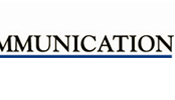

|
|
| Learn what to say... and what NEVER to say! |
|
|
Our PIE Model of Communication
|
Teaching Patients about their Medications: By Edward Leigh, MA According to the National Council for Patient Information and Education, about 50% of the 2 - 3 billion prescriptions filled each year are not taken correctly. According to the Agency for Healthcare Research and Quality, educating patients before they leave the hospital reduces readmissions, emergency department visits and saves money. Medication non-compliance is a very serious problem, however by following a series of guidelines we can help reduce the severity of this issue. The following are tips to help patients understand their medications: Confirm that the patient understands the reason for the medication. Before beginning a discussion of the medication(s), the patient first must have an understanding of the reason for the medication. For example, if a patient has been diagnosed with diabetes, they must first have a basic understanding of their disease. The basics. Be sure you review the following information with the patient: brand / generic name, function, how / when / length of time the medication is taken, possible side effects, foods / liquids / activities to avoid while on the medication, refills (if necessary) and medication storage. Ask about the use of herbal remedies, over-the-counter medications, vitamins and mineral supplements. We should already know about any other prescription medications that patients are taking, but we must also inquire about non-prescription medications, for these could interact with prescription medications. Financial issues. Many people don’t take medications because of economic hardships. We must be very sensitive to this issue and inquire in a careful manner. For example, we must never say, "Can you afford this new medication?" Most people would be too embarrassed to admit they can't. As an option, try a question like this, "This medication will be an additional expense, how does it fit into your finances?" Make it easy for the patient to take the medication. Think of a plan that would work for the patient. If the medication is taken in the evening, suggest they keep the prescription near their toothbrush as a reminder (assuming they brush their teeth before bed!). If they have other medications and use a weekly pill tray, have them add the new pills to the tray. Dosage issues. In some cases, dosages have to be adjusted after beginning the medication. It is important patients are told of this BEFORE they leave. For example, if a patient is taking a preventive medication for migraines, but still has headaches, they may think you gave them the wrong medication and you are not helping them with their medical issue. Literature about the medication. For non-hospitalized patients, many pharmacies provide literature about medications when the prescription is picked up. However, we can't assume this fact. For commonly prescribed medications, having a page about basic medication facts would be very helpful. Use a highlighter or pen to note critical prescription facts for the patient. Check with the patient to verify understanding of the medication. In one of my "Communicating with Patients" workshops, a participant stated, "I would say to a patient, 'I have given you all the medication facts, now repeat them back to me.'" That type of comment puts people on the spot. (If I heard that comment I would think to myself, "Uh oh, I didn't know there was going to be a test!") A better comment would be, "I have given you a lot of information, let's review your understanding of the prescription." Then ask patients to review his/her understanding of what you discussed. Have family members or caregivers be part of the team. Explain the medication to other people so they can help with administration and provide reminders. Identify patients at risk for non-compliance. These patients may need a referral to an agency to help with administration. Also, contact the pharmacist to design a drug administration schedule that can be easily followed. For more information regarding educating patients about their medications, visit the National Council on Patient Information and Education website: http://www.talkaboutrx.org (The organization motto is, "Educate before you medicate.") |
The Center for Healthcare Communication • P.O. Box 18819 • Cleveland, Ohio 44118-0819 USA Site designed by I Am Orange Media Group |